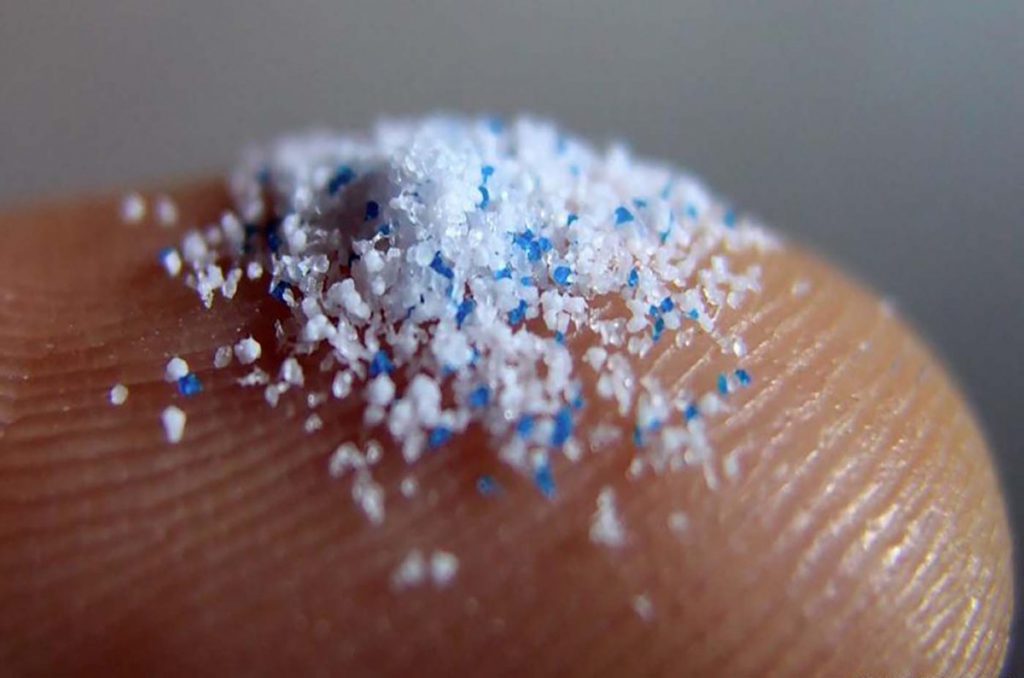A groundbreaking study has connected microplastics to significant health issues
In a groundbreaking study published in The New England Journal of Medicine, researchers have established a significant link between microplastics and serious health issues in humans. The study, conducted on over 200 individuals undergoing surgery, revealed that nearly 60% of them had microplastics or even smaller nanoplastics present in a main artery. Those with plastic particles in their arteries were found to be 4.5 times more likely to experience a heart attack, stroke, or death within approximately 34 months post-surgery compared to those whose arteries were free of plastic particles.
Plastic pollution has become a global concern as these microscopic particles are pervasive in the environment, being found in oceans, shellfish, breast milk, drinking water, and even in the air we breathe. Microplastics are known to be long-lasting, taking centuries to degrade, and have been detected in human blood and organs such as lungs and placenta. While the accumulation of microplastics in organisms is apparent, determining their specific health effects has been a challenge for scientists for the past two decades.
The study, led by Giuseppe Paolisso from the University of Campania Luigi Vanvitelli, focused on investigating whether microplastics accumulate in fatty deposits known as plaques within blood vessels. Analysis of samples from the surgical procedure revealed microplastic particles, primarily composed of polyethylene and polyvinyl chloride, intermingled with cells and waste products in the plaques. Participants with higher levels of microplastics in their plaques also showed elevated biomarkers for inflammation, suggesting a potential mechanism for how these particles could contribute to health issues by triggering inflammation and increasing the risk of plaque rupture.
It is important to note that the study's findings do not conclusively prove that microplastics directly cause poor health outcomes, as other factors such as socio-economic status were not considered in the research. Furthermore, the study participants who did not show evidence of microplastics in their plaques raise questions about individual variations in plastic processing pathways and behaviors that may influence exposure levels.
The implications of this study extend beyond individual health concerns, as it comes at a crucial time when global efforts are underway to address plastic pollution through a treaty aimed at eliminating plastic waste. The study's findings are expected to influence negotiations around the treaty and prompt further studies to corroborate and expand on the risks posed by micro- and nanoplastics to human health.
In light of these research outcomes, there is a growing awareness of the need for a more conscious approach towards plastic usage and its environmental impact. The study serves as a wake-up call for society to reevaluate its reliance on petroleum-derived products and to consider the long-term consequences of plastic pollution on human health and the environment.
(Source: https://www.nature.com/articles/d41586-024-00650-3)
Plastic pollution has become a global concern as these microscopic particles are pervasive in the environment, being found in oceans, shellfish, breast milk, drinking water, and even in the air we breathe. Microplastics are known to be long-lasting, taking centuries to degrade, and have been detected in human blood and organs such as lungs and placenta. While the accumulation of microplastics in organisms is apparent, determining their specific health effects has been a challenge for scientists for the past two decades.
The study, led by Giuseppe Paolisso from the University of Campania Luigi Vanvitelli, focused on investigating whether microplastics accumulate in fatty deposits known as plaques within blood vessels. Analysis of samples from the surgical procedure revealed microplastic particles, primarily composed of polyethylene and polyvinyl chloride, intermingled with cells and waste products in the plaques. Participants with higher levels of microplastics in their plaques also showed elevated biomarkers for inflammation, suggesting a potential mechanism for how these particles could contribute to health issues by triggering inflammation and increasing the risk of plaque rupture.
It is important to note that the study's findings do not conclusively prove that microplastics directly cause poor health outcomes, as other factors such as socio-economic status were not considered in the research. Furthermore, the study participants who did not show evidence of microplastics in their plaques raise questions about individual variations in plastic processing pathways and behaviors that may influence exposure levels.
The implications of this study extend beyond individual health concerns, as it comes at a crucial time when global efforts are underway to address plastic pollution through a treaty aimed at eliminating plastic waste. The study's findings are expected to influence negotiations around the treaty and prompt further studies to corroborate and expand on the risks posed by micro- and nanoplastics to human health.
In light of these research outcomes, there is a growing awareness of the need for a more conscious approach towards plastic usage and its environmental impact. The study serves as a wake-up call for society to reevaluate its reliance on petroleum-derived products and to consider the long-term consequences of plastic pollution on human health and the environment.
(Source: https://www.nature.com/articles/d41586-024-00650-3)


Comments
Post a Comment